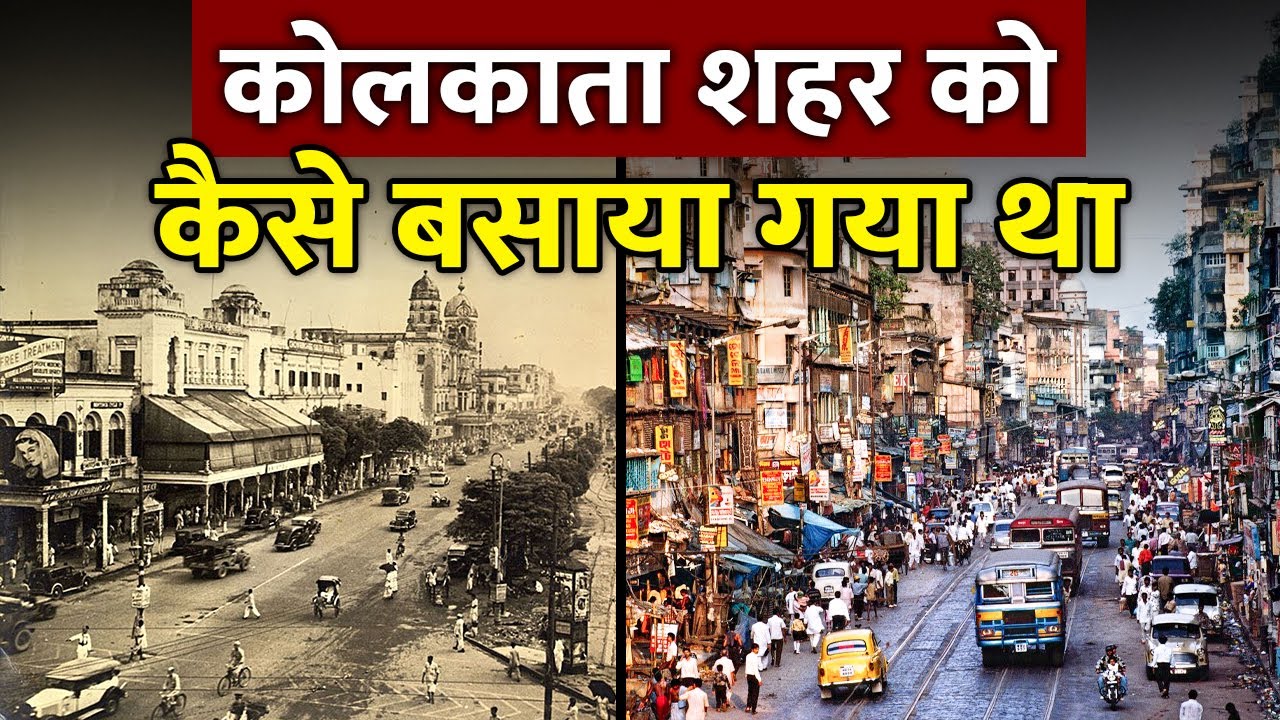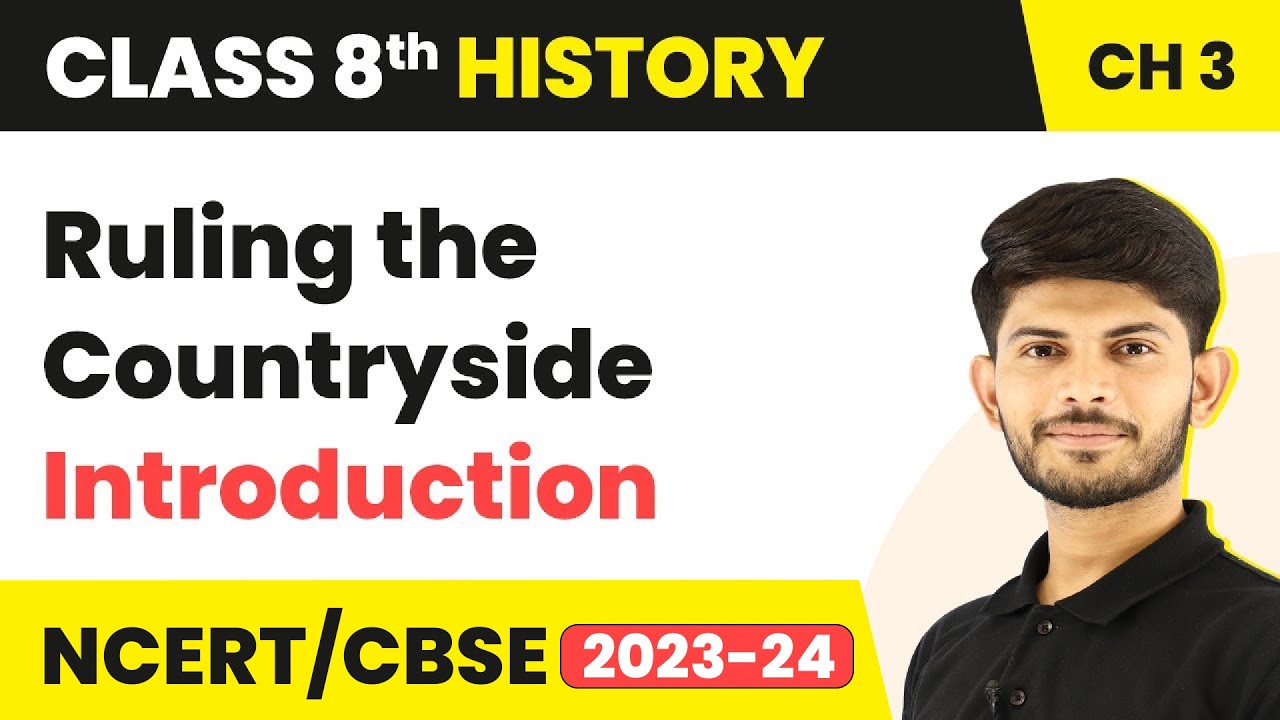Indian Polity by M Laxmikanth for UPSC CSE - Historical background of Indian Constitution
Summary
TLDRThis lecture by Shashank Thyagi delves into the historical underpinnings of the Indian Constitution, tracing the evolution of British administration in India from the East India Company's rule to the pivotal Government of India Act 1858. It highlights key legislations, including the Regulating Act 1773, Pitt's India Act 1784, and various Charter Acts, leading to the establishment of the Reserve Bank of India and the shift from company to crown rule. The talk also covers the significant reforms and communal electorates introduced by the Indian Council Acts and the Government of India Act 1935, culminating in India's independence and the formation of its sovereign democratic republic.
Takeaways
- 📜 The script discusses the historical underpinnings of the Indian Constitution, starting with the British East India Company's rule and the subsequent British administration through acts like the Regulating Act 1773.
- 🏛 The Supreme Court was established in Kolkata during the British rule, with initial jurisdictional issues leading to amendments and the creation of the Governor-General of Bengal's council.
- 🇬🇧 Pitt's India Act 1784 led to the division of the English East India Company's functions into political, handled by the Board of Control, and commercial, overseen by the Court of Directors.
- 📜 The Charter Act 1813 ended the East India Company's monopoly on Indian trade, except for trade with China, and introduced modern education in India funded by the British government.
- 📚 The Charter Act 1833 marked the centralization of British power in India, with the Governor-General of Bengal becoming the Governor-General of India, and the beginning of the administrative shift from a private company to the British Crown.
- 🏛️ The Indian Councils Act 1861 introduced the portfolio system and decentralization in the administration, and was the first step towards involving Indians in the legislative process.
- 📉 The Indian Councils Act 1892 expanded the legislative councils, allowing for more Indian involvement but maintaining an official majority to control decision-making.
- 📊 The Government of India Act 1909, known as the Morley-Minto Reforms, introduced communal electorates and direct elections to the legislative councils, but was criticized for dividing Indian society.
- 🏛️ The Government of India Act 1919, or the Montague-Chelmsford Reforms, established diarchy, dividing powers between the central and provincial governments, and introduced bicameral legislature.
- 🏦 The Government of India Act 1935 proposed an All India Federation and established the Reserve Bank of India, and continued many of its provisions in the new Indian Constitution after independence.
- 🌏 The India Independence Act 1947 declared India an independent and sovereign state, ending British rule and establishing a Governor-General for the new dominion of India.
Q & A
What was the purpose of the Regulating Act 1773?
-The Regulating Act 1773 was passed by the British Parliament to regulate the administration of the British East India Company in India, especially after mismanagement during the Company's rule led to the British government's intervention.
What was the significance of the Supreme Court established in Kolkata?
-The Supreme Court in Kolkata was a crucial institution established under the Regulating Act 1773. It was significant because it raised concerns among the English East India Company, as it meant that British administration wanted to control their affairs, particularly in revenue matters.
What was the Pitt's India Act 1784 and its main objective?
-Pitt's India Act 1784 was legislation passed in Britain that led to the categorization of the functions of the English East India Company into two parts: the Board of Control, responsible for political functions, and the Court of Directors, handling commercial affairs. The Act aimed to assert British government authority over the Company.
What was the impact of the Charter Act 1813 on the English East India Company's trade monopoly?
-The Charter Act 1813 terminated the English East India Company's monopoly on Indian trade, except for the trade with China, allowing other British companies to engage in trade within the Indian peninsula.
Why did the British government earmark funds for modernized education in India under the Charter Act 1813?
-The British government earmarked one lakh rupees annually for modernized education in India to produce individuals with specific skills to run the administration and to interpret and expose Indian literature to the world in English and other languages.
What was the final step of centralization according to the Charter Act 1833?
-The Charter Act 1833 marked the final step of centralization by giving the Governor-General of Bengal the status of Governor-General of India, making the seat in Bengal representative of British interests across the Indian peninsula.
What was the significance of the Indian Councils Act 1861 in terms of Indian involvement in governance?
-The Indian Councils Act 1861 was significant as it initiated the process of involving Indians in governance by appointing three Indians to the central legislative council and introducing the portfolio system, which allocated individual responsibilities within the executive council.
How did the Indian Councils Act 1892 expand the involvement of Indians in legislative councils?
-The Indian Councils Act 1892 expanded the involvement of Indians by increasing the number of non-official members in both central and provincial legislative councils, although it maintained an official majority to ensure control remained with the British administration.
What was the main criticism of the separate electorate introduced by the Indian Councils Act 1909?
-The main criticism of the separate electorate introduced by the Indian Councils Act 1909 was that it divided Indian society along communal lines, potentially weakening the national movement and leading to a focus on community-based interests rather than a unified national interest.
What was the Government of India Act 1919's approach to the division of powers between the center and the provinces?
-The Government of India Act 1919 introduced a system of diarchy, dividing powers between the center and the provinces. It categorized subjects into central and provincial subjects, with some subjects reserved for the governor's decision without legislative council input and others transferred to the legislative council for discussion and law-making.
Outlines

此内容仅限付费用户访问。 请升级后访问。
立即升级Mindmap

此内容仅限付费用户访问。 请升级后访问。
立即升级Keywords

此内容仅限付费用户访问。 请升级后访问。
立即升级Highlights

此内容仅限付费用户访问。 请升级后访问。
立即升级Transcripts

此内容仅限付费用户访问。 请升级后访问。
立即升级浏览更多相关视频

Important Acts of India|| You Must know|| Static GK Series🌝

3 गांवों को मिलाकर अंग्रेजों ने कैसे बसाया कोलकाता? | History Of Kolkata : Kolkata Ka Itihaas

Ruling the Countryside - Introduction | Class 8 History

Regulating Act, 1773 | India Kanoon | Modern History for UPSC | By Arti Chhawari

Class 8 History Chapter 2 - From Trade to Territory Oneshot Explanation

This Type of Bullet Caused an Entire Uprising!
5.0 / 5 (0 votes)
